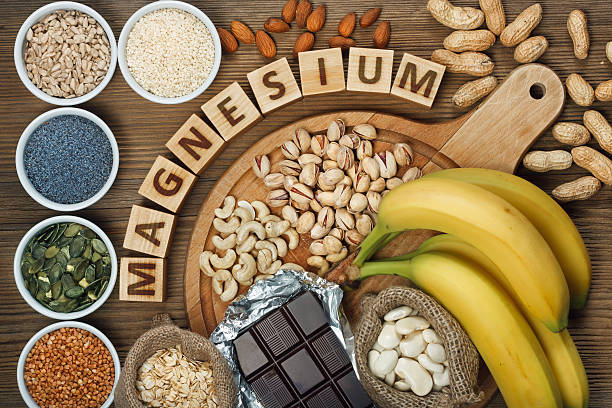Late-Night Snacking: Healthy Options That Support Sleep and Digestion
Healthy late-night snacks can support balanced eating without disrupting sleep. Choosing light, nutrient-rich options like fruit, yogurt, or whole-grain treats and keeping portions moderate helps satisfy hunger while promoting overall wellness and mindful eating habits.

Healthy Snacks That Promote Better Sleep
When selecting a pre-bedtime snack, certain nutrients can actually enhance sleep quality. Foods containing tryptophan, an amino acid that helps produce serotonin and melatonin, may help you fall asleep faster and rest more soundly. Dairy products like yogurt and milk contain both tryptophan and calcium, which helps the brain use tryptophan effectively. A small bowl of plain Greek yogurt with a drizzle of honey provides protein and probiotics while potentially aiding sleep. Another excellent option is a small handful of almonds or walnuts, which contain melatonin and magnesium—minerals that support muscle relaxation and sleep regulation. Tart cherries, either as juice or dried, are one of the few natural food sources of melatonin and make an excellent sleep-supporting snack.
Balanced Nighttime Options That Won’t Disrupt Sleep
The ideal pre-bedtime snack strikes a balance—satisfying hunger without causing digestive discomfort. Complex carbohydrates paired with moderate protein create this balance effectively. A small banana with a teaspoon of almond butter combines sleep-promoting potassium and magnesium with protein to help maintain stable blood sugar levels throughout the night. Half a whole-grain toast with avocado delivers fiber and healthy fats that satisfy hunger without feeling too heavy. Kiwi fruit has been specifically studied for its sleep benefits, with research suggesting that eating two kiwis before bed may improve both sleep quality and duration. For those who enjoy warm options, oatmeal made with milk and topped with a few berries provides complex carbohydrates that can increase serotonin production while delivering fiber and antioxidants.
Quick and Nutritious Late-Night Snacks for Busy People
Finding time to prepare elaborate snacks before bed isn’t practical for most people. Fortunately, numerous nutritious options require minimal preparation. Hard-boiled eggs, prepared in batches earlier in the week, provide tryptophan and protein in a ready-to-eat package. A small container of cottage cheese paired with a few berries offers sleep-supporting casein protein and antioxidants without any cooking. For plant-based eaters, edamame beans (available frozen and ready to heat) deliver protein and calming magnesium. Air-popped popcorn without butter is a whole grain option that provides filling fiber with few calories. Pre-chopped vegetable sticks with a tablespoon of hummus combine fiber with tryptophan-containing chickpeas for a snack that’s both satisfying and sleep-friendly.
Late-Night Snacks That Aid Digestion
The digestive system works most efficiently when it’s not overwhelmed, particularly at night when your body is preparing for rest. Snacks containing probiotics and digestive enzymes can be especially beneficial before bedtime. A small serving of kefir provides beneficial bacteria that support gut health while delivering calcium and protein. Pineapple contains bromelain, an enzyme that aids protein digestion and may reduce inflammation in the digestive tract. A thin slice with a few crackers makes a light digestive-friendly snack. Ginger tea with a small piece of dark chocolate combines the digestive benefits of ginger with magnesium from the chocolate, which helps relax muscles throughout the body. For those with sensitive stomachs, a small bowl of papaya contains papain, an enzyme that specifically aids protein digestion and may reduce bloating overnight.
Foods to Avoid Before Bedtime
Equally important to knowing what to eat before bed is understanding what to avoid. High-fat, spicy, or heavily processed foods can cause heartburn and indigestion, disrupting sleep. Caffeine, found not just in coffee but also in chocolate, some teas, and many sodas, can remain in your system for hours, potentially preventing you from falling asleep. Foods high in added sugars can cause blood sugar spikes and crashes throughout the night, leading to restless sleep and potential midnight hunger. Alcohol, though it might initially make you drowsy, typically reduces overall sleep quality and can lead to waking during the night. Instead, opt for the gentle, sleep-supporting snacks mentioned earlier that work with your body’s natural rhythms rather than against them.
Understanding the Timing of Late-Night Snacks
When you eat your bedtime snack matters almost as much as what you choose to eat. Consuming food too close to bedtime may cause digestive discomfort for some individuals, while eating too early might result in hunger returning before sleep. Generally, eating a small snack about 30 minutes to an hour before bedtime works well for most people. This timing allows initial digestion to begin but doesn’t leave too much time for hunger to return. Portion control remains crucial—late-night snacks should typically contain between 150-200 calories, enough to satisfy hunger without overwhelming your digestive system. This approach allows your body to focus on restorative processes during sleep rather than active digestion, promoting better rest quality while still addressing genuine hunger needs.
This article is for informational purposes only and should not be considered medical advice. Please consult a qualified healthcare professional for personalized guidance and treatment.




